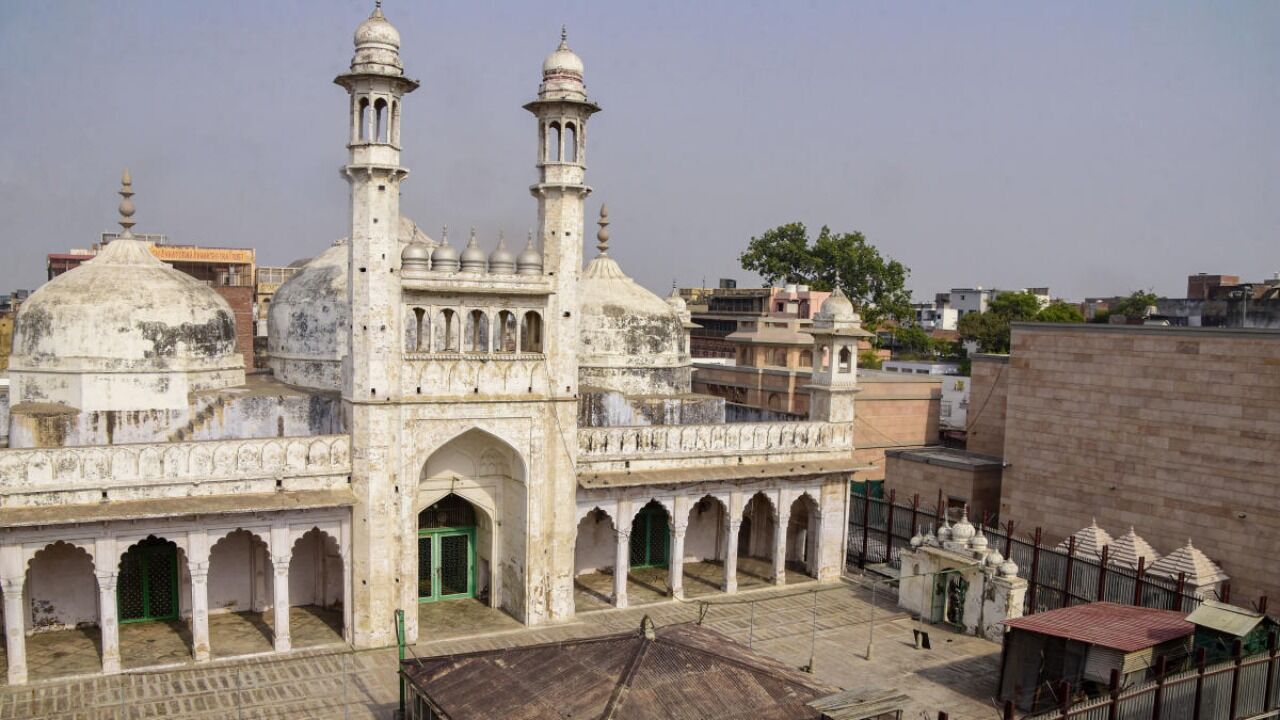Avoiding amplification
While the disputed Gyanvapi mosque-Kashi Vishwanath site must see a peaceful resolution, escalation of similar cases should also be prevented

RSS chief Mohan Bhagwat spoke on the legal tangle over Varanasi's Gyanvapi mosque. "We have devotion towards Gyanvapi and doing something as per that, it's alright. But why look for a Shivling in every masjid?" says the 6th Sarsanghchalak of the Rashtriya Swayamsevak Sangh.
When the issue of the decades-old Gyanvapi mosque and Kashi Vishwanath controversy reached the Supreme Court on May 13, it made headlines recently. This happened just days after a local court in Varanasi ordered the videography survey at the sacred compound to continue. On May 13, the Supreme Court denied a temporary stay on the videography survey of the Gyanvapi mosque.
The 17th-century mosque and the 18th-century Kashi Viswanath Temple share a boundary, and the campus is known as the Kashi Vishwanath-Gyanvapi complex. The mosque, which stands to the left of the Kashi Vishwanath temple, is reported to have been built on Mughal ruler Aurangzeb's instructions in 1669. The Vishweshwar temple, dedicated to Lord Shiva, is supposed to have been demolished as a result of this. According to historians, Maratha ruler Ahilyabai Holkar of Indore built the current edifice of the Kashi Vishwanath temple on the adjacent side of the mosque around 1780. They claim that between 1194 and 1669 AD, Muslim conquerors such as Mohammad Ghori and Sikandar Lodi demolished the Vishweshar temple several times, although remnants of its western wall in the Gyanvapi mosque attest to its existence and antiquity.
Five ladies petitioned in April of last year to be permitted to perform daily darshan, pooja, and other rituals of Maa Shringar Gauri and other goddesses within the old temple compound. After that, a commissioner was appointed by a civil judge. The plaintiffs claimed that an image of the Goddess might be found on the western wall of the mosque next to the Kashi Vishwanath temple.
The Allahabad High Court in March dismissed a petition filed by the mosque's caretakers challenging the judge's order assigning a court commissioner to assess the facility. In the Gyanvapi mosque-Kashi Vishwanath case, several petitions have been filed with the Supreme Court, Allahabad High Court, and Varanasi Court. According to the petitioners, Mughal emperor Aurangzeb erected the mosque after demolishing the Kashi Vishwanath Temple. The court had ordered a court commissioner to conduct a survey regarding the entire matter.
On the other hand, when a court-appointed delegation led by attorney commissioner Ajay Kumar arrived for the survey on May 6-7, they were blocked from entering the masjid grounds and a barricaded section within it by a throng backed by the Anjuman Intezamia Masjid Committee, the mosque's managing body. According to reports, while the survey is intended to determine whether the mosque was built on the foundations of a temple, the mosque committee has been insistent about not allowing anybody to enter its premises and insists that the investigation be limited to the mosque's outer wall. On May 7, the committee filed a lawsuit in court, accusing the commissioner of bias and requesting his replacement. The committee also requested that the survey only include particular areas of the precincts. On May 12, a Varanasi court dismissed the committee's request, stating that the survey within the mosque would continue. Furthermore, the Supreme Court declined to order a halt to the survey ordered by the Varanasi court, saying it would make a decision after reviewing the issue.
This has not been the first time a dispute over the complex's ownership has occurred. The entire complex was deemed a part of the mosque by three Muslim petitioners in 1936. The Allahabad High Court, on the other hand, dismissed the petition in 1942. Pandit Somnath Vyas, a descendant of Kashi Vishwanath temple priests, petitioned a Varanasi civil court in 1991 to hand over the mosque land to the temple, claiming that the Places of Worship (Special Provisions) Act, 1991 did not apply to the mosque because it was allegedly built on the remnants of the old Visweshwar temple. No changes can be made to any house of worship under the statute; it must stay as it was on August 15, 1947.
The ongoing dispute is yet to reach a final hearing while people from all communities stand tall with their respective beliefs and opinions on the conflict. As said by the RSS chief "Why should we escalate the dispute?", the case is hopeful to reach a peaceful verdict.
Views expressed are personal



